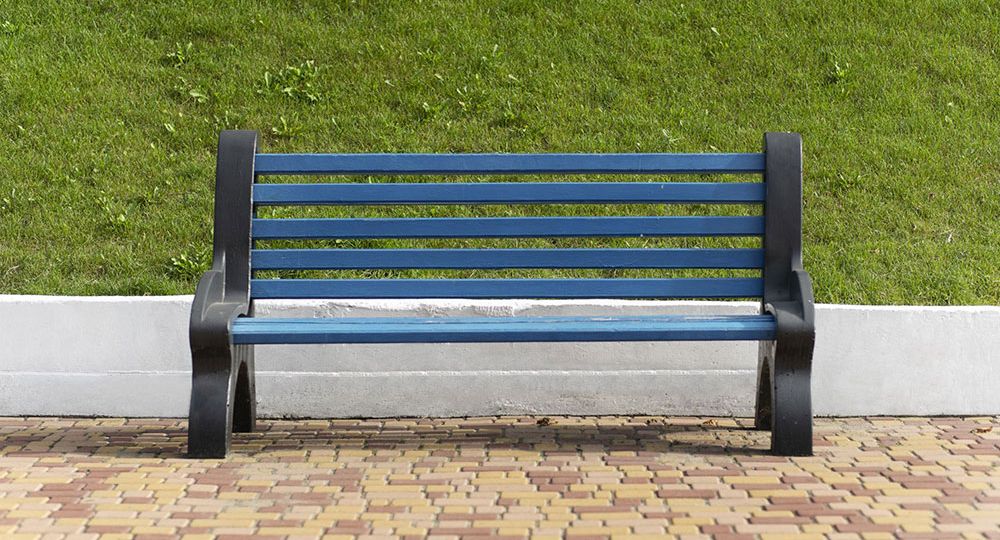
Introduction: A Greener Way to Furnish Outdoors
Outdoor spaces are becoming an extension of our homes, workplaces, and public areas. As we grow more environmentally conscious, it’s crucial to make sustainable choices, including the furniture we use in gardens, parks, schools, and business premises. Recycled plastic outdoor furniture has emerged as one of the most environmentally responsible choices available today. It not only helps reduce plastic waste but also offers a long-lasting, low-maintenance alternative to traditional materials like wood and metal.
1. Reducing Plastic Waste and Landfill Dependency
Each year, millions of tonnes of plastic end up in landfills or the ocean. Recycled plastic furniture directly combats this issue by giving new life to post-consumer plastics such as milk jugs, bottles, and packaging. Instead of polluting ecosystems, this waste is transformed into functional, attractive furniture items. By choosing recycled plastic benches, tables, and chairs, consumers actively participate in reducing environmental pollution.
Moreover, this process supports the circular economy. Instead of following the linear pattern of take-make-dispose, recycled plastic furniture embodies reuse and repurpose principles. The result is a closed-loop system that reduces the demand for virgin plastic production and mitigates plastic pollution.
2. Lowering the Carbon Footprint
Manufacturing furniture profiles from recycled plastic uses significantly less energy than producing virgin plastic or processing wood and metal. The reduction in energy consumption leads to a decrease in carbon dioxide emissions. This is especially relevant in the UK, where carbon neutrality goals have been set for 2050.
Furthermore, by using locally sourced recycled materials, UK manufacturers reduce the emissions associated with global transportation and supply chains. This makes recycled plastic outdoor furniture a particularly eco-conscious option for businesses and councils looking to meet sustainability targets.
3. Long Lifespan and Minimal Maintenance
One of the standout features of recycled plastic furniture is its exceptional durability. Unlike wood, which may rot, crack, or warp over time, especially in the UK’s variable climate, recycled plastic stands up to rain, frost, UV rays, and general wear and tear.
Maintenance is also minimal. These products don’t require painting, staining, or sealing. They can be cleaned simply with soap and water, eliminating the need for chemical cleaners or preservatives. This further contributes to environmental protection, as fewer pollutants are introduced into the soil or waterways.
4. Preservation of Natural Resources
Wood furniture, although biodegradable, often involves deforestation and the destruction of ecosystems. With rising concerns about forest conservation, choosing recycled plastic helps to lessen the demand for timber, preserving trees and wildlife habitats.
Metal and concrete alternatives, while durable, are resource-intensive to produce and often involve significant emissions and mining impacts. Recycled plastic furniture, by contrast, diverts waste from landfills without exhausting non-renewable resources.
5. Health and Environmental Safety
Recycled plastic used in outdoor furniture is often free from harmful chemicals and toxins. Once processed, it becomes a stable, inert material that does not leach harmful substances into the environment, making it safe for use in playgrounds, schools, and parks.
Additionally, it resists pests such as termites and does not splinter like wood, making it safer for children and the general public. This means fewer chemical treatments are needed, further supporting healthier ecosystems and public safety.
6. Versatility and Customisation
Recycled plastic can be manufactured in a wide range of colours, styles, and finishes, from traditional wood-like textures to bold contemporary designs. This makes it suitable for a variety of settings, including gardens, educational institutions, hospitality spaces, and urban areas.
Businesses and local councils can customise furniture to match branding or local aesthetics, making recycled plastic an attractive as well as practical choice. Whether it’s a park bench with a school logo or a picnic table in a company’s brand colours, recycled plastic offers unmatched flexibility.
7. Long-Term Cost Effectiveness
While the upfront cost of recycled plastic furniture may be slightly higher than wooden alternatives, its long-term value is far greater. Due to its durability and low maintenance, replacement costs are significantly reduced.
For schools, parks, and public sector organisations operating under tight budgets, this represents excellent value over time. Fewer repairs, replacements, and maintenance tasks translate to ongoing savings in labour and materials.
8. Weather Resistance and UK Climate Suitability
Recycled plastic furniture is particularly suited to the UK’s weather conditions. It doesn’t absorb moisture, so it won’t swell or rot in wet weather. It’s also UV-resistant, meaning it won’t fade or crack in direct sunlight.
This makes it ideal for permanent outdoor installations. Whether placed in school playgrounds, office courtyards, or coastal areas, the furniture will retain its functionality and appearance for years to come.
9. Enhanced Public Image and Environmental Responsibility
In an age where sustainability credentials can influence customer loyalty and public perception, choosing recycled plastic outdoor furniture demonstrates environmental responsibility. For businesses, this can strengthen brand identity and appeal to eco-conscious consumers.
Local councils, schools, and commercial enterprises that invest in environmentally friendly infrastructure contribute to community well-being and set a positive example. Promoting such initiatives can also help in meeting Corporate Social Responsibility (CSR) goals.
10. Case Studies and Real-World Applications
Across the UK, numerous schools, councils, and private businesses are making the switch to recycled plastic outdoor furniture. From playgrounds in Manchester to coastal paths in Cornwall, these installations show how practical, attractive, and environmentally sound this choice can be.
At Tamstar, we have supplied recycled plastic products to schools, industrial parks, and community centres nationwide. Clients appreciate not only the sustainable aspect but also the longevity and low upkeep. Positive feedback frequently highlights the professional finish and how well the furniture complements outdoor spaces.
Conclusion: A Smarter, Greener Investment
Recycled plastic outdoor furniture offers the perfect blend of sustainability, functionality, and style. It helps reduce environmental impact, saves natural resources, and provides long-lasting performance with minimal maintenance.
By choosing recycled plastic, individuals and organisations contribute directly to a healthier planet. Whether you’re outfitting a school, park, or business premises, recycled plastic furniture is a future-proof solution that aligns environmental values with practical needs.
